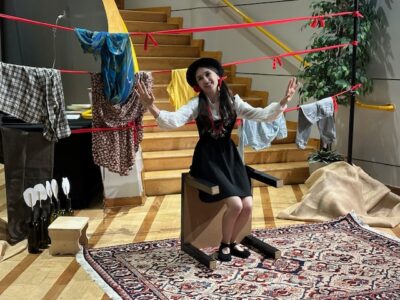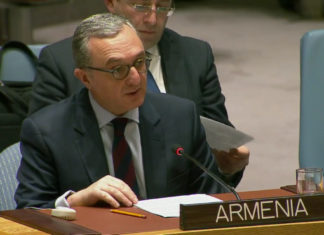 PALO ALTO, Calif. – The full horrors visited upon a nation can be expressed by the story of one small boy. The nation is the Armenian people who lived in their ancient lands in the Ottoman Empire and the boy is Karning Panian.
PALO ALTO, Calif. – The full horrors visited upon a nation can be expressed by the story of one small boy. The nation is the Armenian people who lived in their ancient lands in the Ottoman Empire and the boy is Karning Panian.
Stanford Press this month releases the English translation of his memoirs, Goodbye Antoura: A Memoir of the Armenian Genocide.
In 1915, 5-year-old Karnig Panian was living among his fellow Armenians in the village of Gurin. Four years later, American aid workers found him at an orphanage in Antoura, Lebanon. He was among nearly 1,000 Armenian and 400 Kurdish children who had been abandoned by the Turkish administrators, left to survive at the orphanage without adult care. This extraordinary memoir tells the story of what happened in between.
Goodbye, Antoura follows Panian from his idyllic childhood through the Ottoman mass expulsion of Armenians during World War I. Following his father’s conscription into the Turkish army, where he was forced into hard labor and ultimately driven to his death, Panian, his mother, sister and grandfather were forced into a march from their village and through the Syrian Desert. After his family died in a refugee camp, Panian was taken to the orphanage of Antoura in Lebanon, where he suffered from hunger and mistreatment. There, administrators sought, often through violent means, to transform the children into Turks by changing their Armenian names, forcing them to speak Turkish, forbidding any mention of their religion and erasing their history.
But the children showed a remarkable degree of courage, resilience and resistance. A small band of them, including Panian, managed occasionally to climb the walls of the desecrated former monastery that housed the orphanage and forage for food. They even managed to escape briefly, retreating to the surrounding countryside and trying to live off what they could find. When survival became too difficult they returned to the orphanage only to find that the war had ended and the adults had fled.
Panian’s memoir is a full-throated story of loss, strength, and survival told without bitterness or sentimentality. His story shows us how even young children recognize injustice and can organize against it and form a sense of identity that they will fight to maintain. He paints a painfully rich and detailed picture of the lives and agency of Armenian orphans during the darkest days of World War I. Goodbye, Antoura assures us of how humanity, once denied, can be again reclaimed.
Panian was a longtime educator and vice principal at Djemaran, the Armenian Lyceum, based in Beirut, Lebanon. His daughter, Houry Panian Boyamian, the principal of St. Stephen’s Elementary School in Watertown commissioned the translation.
“On the occasion of the 100th anniversary of the Armenian Genocide, I felt a deep obligation to introduce my father’s memoir to a wider audience. I hoped to honor the memory of my father and his fellow orphans; to prevent, in our own way, future injustices; and to contribute to the demand for reparations,” she said.
Simon Beugekian translated the book and Vahe Habeshian made revisions and added explanatory footnotes. Boyamian wrote the acknowledgments and a host of scholars championed this project. Prof. Aram Goudsouzian edited the initial draft prior to its submission to Stanford University Press and provided thorough revisions before its publication. Prof. Keith Watenpaugh was an outstanding advocate for the book, and his introduction and afterword provide the necessary historical context. Prof. Richard Hovannisian attested to the importance of this memoir in his endorsement and Dr. Vartan Gregorian wrote a heartfelt foreword to the book.
The book is available from Stanford University Press, http://www.sup.org as well as Amazon.
Stanford Press Releases English Translation of Genocide Survivor’s Memoir
Top 5 Articles
- Trending
- Most Viewed
- Most Commented
- Valerian Markarov: Writing Russian and Being Armenian in Georgia
- US and European Aid Package to Armenia Is Not Only Cheap, It’s Dangerous
- California Armenian Legislative Caucus Foundation Announces Scholarships in Remembrance of the Armenian Genocide
- Recipe Corner: Kohar Avakian’s Cherished Family Recipe for Tutum
- By Pleasing Foes, Armenia Is Diving Headfirst into the Abyss
- Why I Am Grateful to Erdogan, the Dictator of Turkey
- A Political Whirlwind Engulfs Nagorno Karabakh
- Libya’s Interim Government Recognizes the Armenian Genocide Once Again
- Robert Bedrosian Marries High Tech With Ancient Armenian Manuscripts
- Aleppo Aid through St. Kevork Armenian Apostolic Church of Houston








